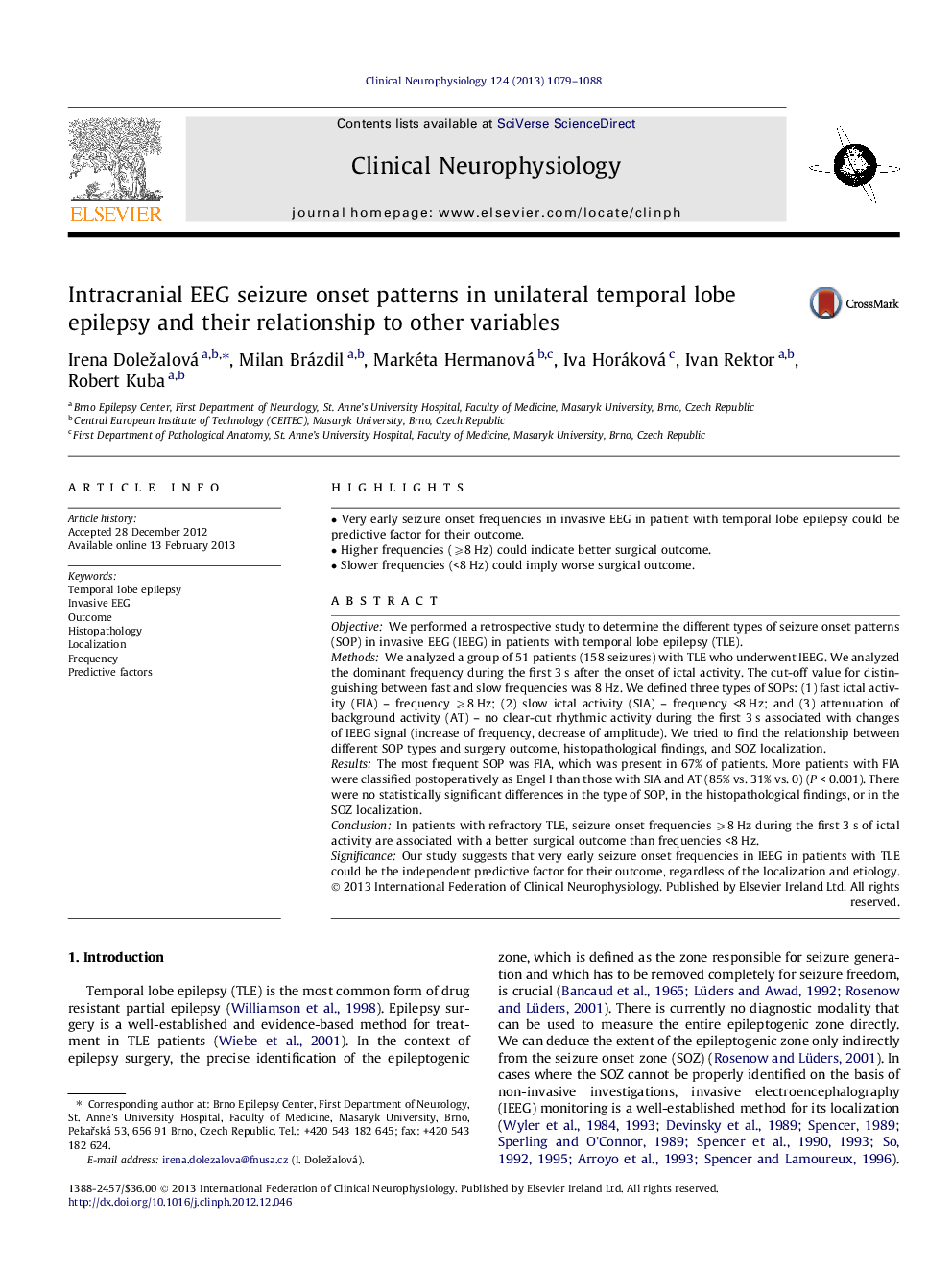| Article ID | Journal | Published Year | Pages | File Type |
|---|---|---|---|---|
| 3043862 | Clinical Neurophysiology | 2013 | 10 Pages |
ObjectiveWe performed a retrospective study to determine the different types of seizure onset patterns (SOP) in invasive EEG (IEEG) in patients with temporal lobe epilepsy (TLE).MethodsWe analyzed a group of 51 patients (158 seizures) with TLE who underwent IEEG. We analyzed the dominant frequency during the first 3 s after the onset of ictal activity. The cut-off value for distinguishing between fast and slow frequencies was 8 Hz. We defined three types of SOPs: (1) fast ictal activity (FIA) – frequency ⩾8 Hz; (2) slow ictal activity (SIA) – frequency <8 Hz; and (3) attenuation of background activity (AT) – no clear-cut rhythmic activity during the first 3 s associated with changes of IEEG signal (increase of frequency, decrease of amplitude). We tried to find the relationship between different SOP types and surgery outcome, histopathological findings, and SOZ localization.ResultsThe most frequent SOP was FIA, which was present in 67% of patients. More patients with FIA were classified postoperatively as Engel I than those with SIA and AT (85% vs. 31% vs. 0) (P < 0.001). There were no statistically significant differences in the type of SOP, in the histopathological findings, or in the SOZ localization.ConclusionIn patients with refractory TLE, seizure onset frequencies ⩾8 Hz during the first 3 s of ictal activity are associated with a better surgical outcome than frequencies <8 Hz.SignificanceOur study suggests that very early seizure onset frequencies in IEEG in patients with TLE could be the independent predictive factor for their outcome, regardless of the localization and etiology.
► Very early seizure onset frequencies in invasive EEG in patient with temporal lobe epilepsy could be predictive factor for their outcome. ► Higher frequencies (⩾8 Hz) could indicate better surgical outcome. ► Slower frequencies (<8 Hz) could imply worse surgical outcome.
